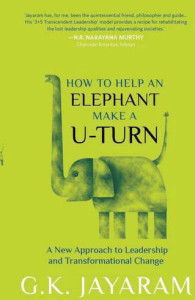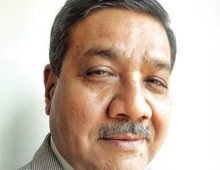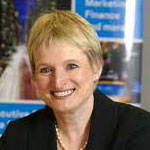Leadership vacuum in countries and in organizations has become a major cause for chaos and uncertainty these days. This is because they have been led largely by transactional leaders. A few lucky ones have transformational leaders who are able to move ahead but they too fall short when they are required to be game-changers or think beyond their comfort zones.
To Dr. G K Jayaram, the world today needs transcendent leaders – those who can create enthusiasm for change, transcend immediate bonds and boundaries and unleash the power of the soul to achieve larger purpose.
This is a big ask and only a handful of global leaders have managed to meet Dr. Jayaram’s defi nition of a transcendent leader. This inspired him to write ‘How to Help An Elephant Make a U-Turn – A New Approach to Leadership and Transformational Change’. The book’s purpose is to guide leaders into transforming themselves into transcendent leaders. He has offered several models and templates to achieve this goal.
Excerpts of a chat between Dr. Jayaram and Benedict Paramanand
What are the conditions needed for big change to happen?
Transformational change in a system does not come only because people are frustrated; it’s not enough to be miserable to force change, or it does not happen because you have hope. It happens when there is an optimum mix of desperation and hope. You have to be dissatisfied enough to want to do something but see enough potential that if you put in the effort, you will get it. Unlike the West, India seems to find itself in this situation. The kind of leader we need are those who can transcend classes and nationhood.
What’s the 3 + 5 formula that you have proposed?
Like the three eyes of Lord Shiva, leaders need Integrity, Intensity and Intelligence, all in good measure to lead change. They also need what I call five pillars – Self awareness, Inter-personal wisdom, Group wisdom, Community wisdom and Global wisdom.
It appears that transcendent leaders have lofty goals but are pragmatic to the core. For example, Nelson Mandela, when he was released from prison after 27 years, did not want to chase the white population away. He knew that for South Africa to survive it needed the capital and expertise of the Whites.
You are an institution builder. You built the Infosys Leadership Institute and the Jawaharlal Nehru Leadership Institute. What’s your view of the current crop of Indian political leaders?
It’s amazing how, in India, you have training even for paramedics but not for politicians who determine the future of the country. It did make a beginning when we set up the Jawaharlal Nehru Leadership Institute and I was the chief mentor for 5 years. I suggested that there should be such an institute open to all parties, because a significant part of being a political leader and an elected leader is not ideological but pragmatic issues of the citizenry.
Prime Minister Modi is a good leader. But for him to become a great leader he needs to practice the three principles on integrity equally well. Which is, integrity is knowing right from wrong, practicing right from wrong, and standing up and proclaiming this is what I believe is right and wrong. Perhaps he is
falling short on the last one.
Once in a long while a totally unknown person (Arvind Kejriwal ) – gets an opportunity to transform the society. But temptations are huge. If he succumbs, he could turn into the kind of a leader who maintain status quo for perpetuating their personal power.
You have had a charmed life so far. How would you describe it?
The free India gave me, and thousands of poor kids, opportunities to excel. Every degree I have – B.Sc, B.E., PGDBA – came free. IIM Ahmedabad was launched in 1964 and my future was shaped by this event. I was a gold medalist in IIM Ahmedabad in 1968 and went to the US on a Ford Scholarship. I lived in the US for 32 years and worked as an independent consultant for Fortune-15 firms and for non-profits.
I was the first chairman of Infosys when Mr. Murthy conceived it in 1981. What an amazing institution Murthy and the 6 young people I met then have created. I was glad to have contributed to it.
I sold my software firm in New Jersey in 1999 and accepted Mr. Narayana Murthy’s invitation to set up the Infosys Leadership Institute in Mysore. It won the International Award for Corporate University early on.
What’s interesting is that my work has been in the upstairs and down stairs of organizations, in the boardrooms and shop floors. I like to be known as an institution builder.
In 2003, I moved to the development sector and worked all over India off ering pro bono
consulting and coaching. We run five free schools for 1200 slum children. This experience has been the most satisfying for me.











Recent Comments